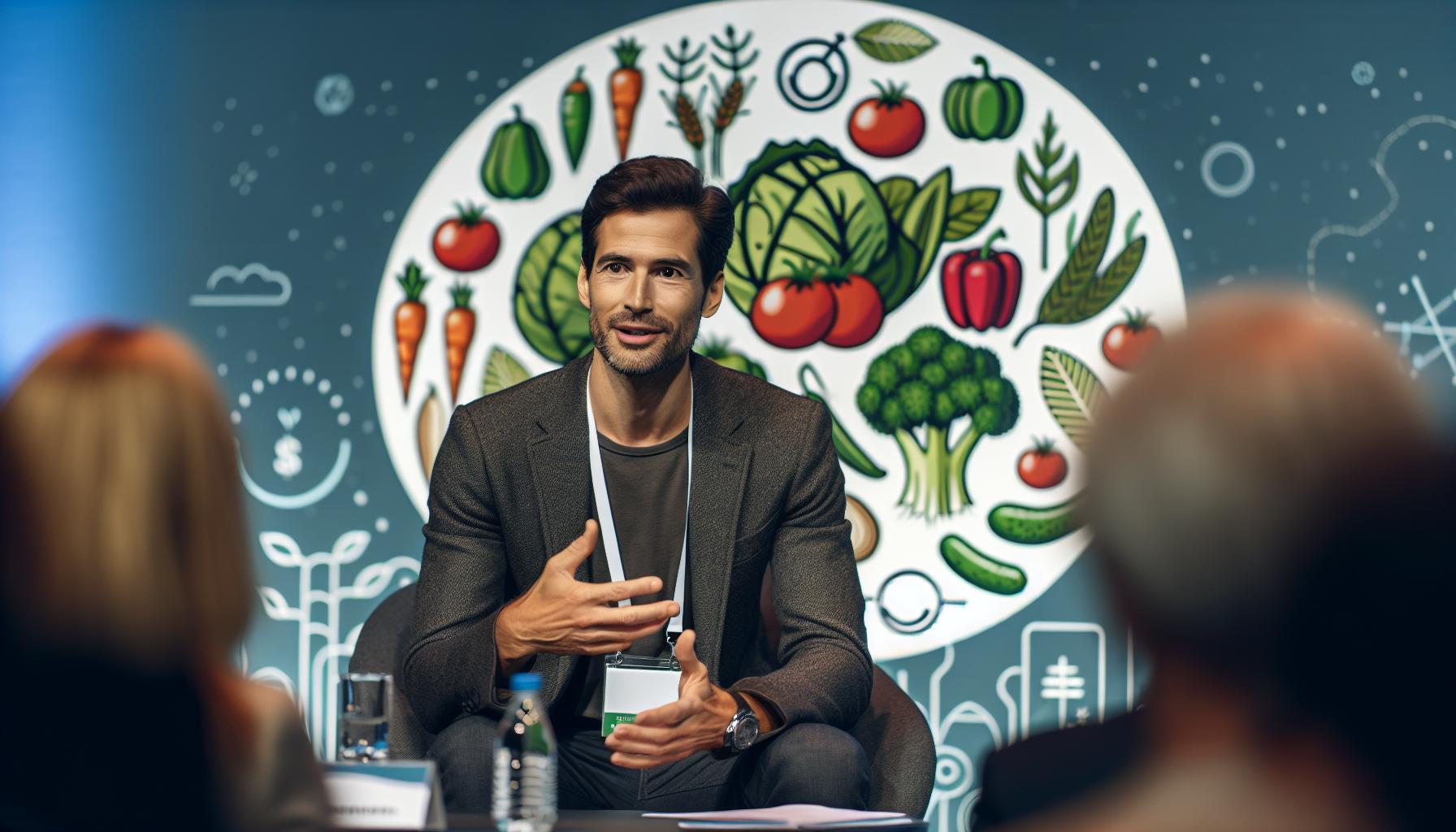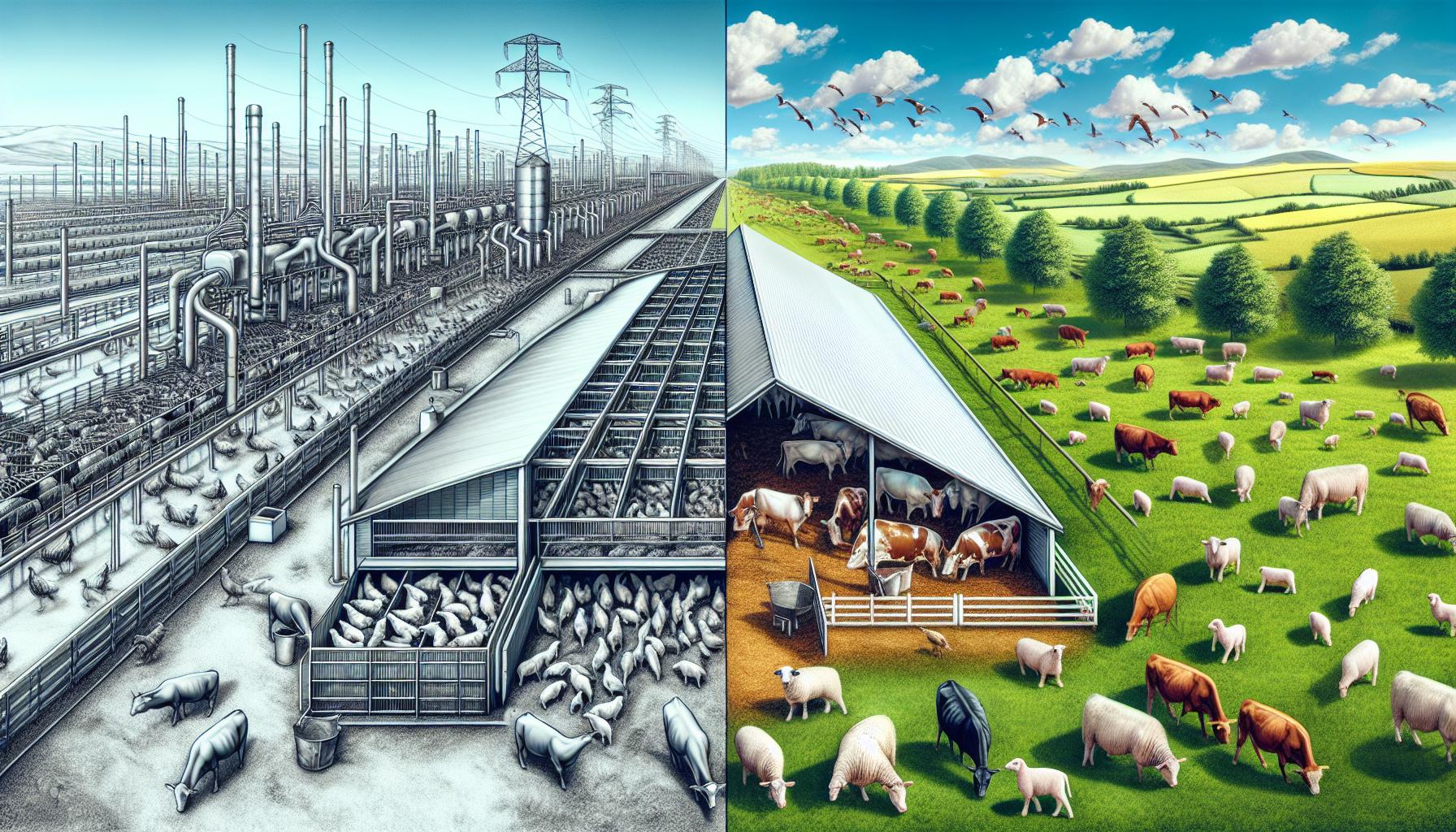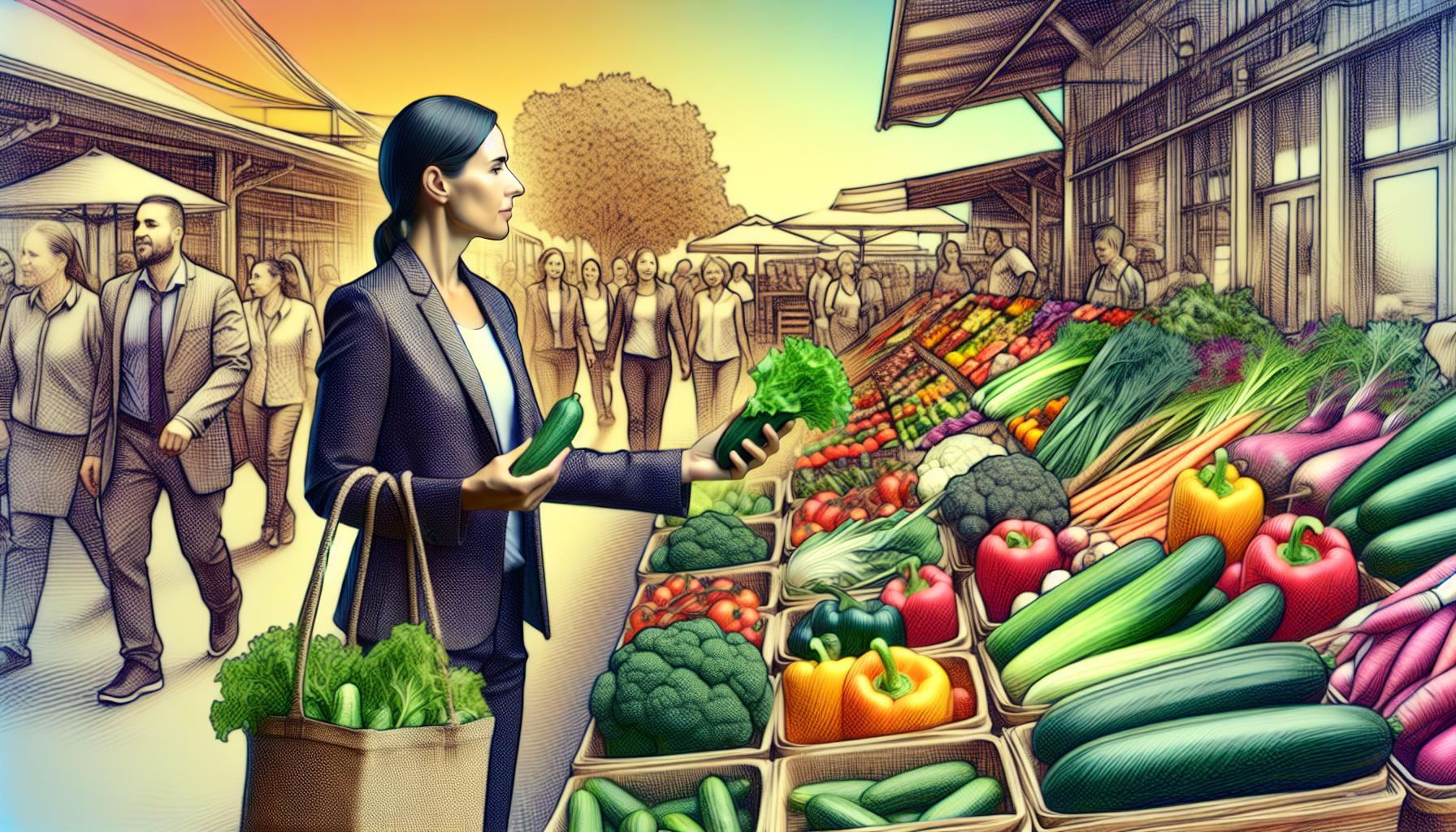Mark Bittman’s “A Bone to Pick” isn’t just another book on the shelf; it’s a deep dive into the complex world of food politics, sustainability, and health. As someone who’s been on the frontline of the food industry debate, I’ve seen firsthand how these issues affect us all. Bittman’s insights are both eye-opening and thought-provoking, making this book a must-read for anyone interested in the future of food.
You might be wondering why I’m the guy to walk you through this. Well, I’ve spent years exploring the food industry, from farm to table, and everything in between. My journey has given me a unique perspective on how what we eat impacts our world. I’ve written extensively on food sustainability, health, and policy, making me well-equipped to guide you through Bittman’s work.
In this guide, we’ll uncover three key takeaways: the critical need for a shift toward sustainable eating, the impact of industrial farming on our health and the planet, and the power of individual choices in driving change. Let’s dive in and see what “A Bone to Pick” has in store for us.
Overview of “A Bone to Pick”
When I first cracked open A Bone to Pick, I was eager to dive into Mark Bittman’s world of food politics and sustainability. Trust me, the journey was eye-opening. This wasn’t just a read; it was a wake-up call about our food systems. Bittman has this knack for making complex topics utterly digestible, pun intended.
“A Bone to Pick” Unpacked
In his book, Bittman lays out a buffet of truths about the food industry. He didn’t shy away from the heavy stuff, discussing industrial farming and its toll on our health and the planet. Remember when I mentioned sustainable eating as a necessity? Well, Bittman’s arguments are a testament to that. He uses compelling data, like how industrial farming is responsible for 25% of global greenhouse emissions, to drive his points home.
From Page to Plate: Real-World Application
Applying Bittman’s insights to my life wasn’t just enlightening; it was transformative. I started scrutinizing labels more, opting for locally sourced fruits and veggies over those trucked in from afar. It made me feel like a part of the solution, however small. I recall a quote from the book that stuck with me: “Every meal is a choice.” And believe me, those choices start to add up.
The Ripple Effect of Individual Choices
A key takeaway from Bittman’s work is the power of individual actions. It’s easy to think one person’s choices don’t matter in the grand scheme of things. Yet, as mentioned, making sustainable choices can influence demand and push for better practices industry-wide. A friend of mine switched to a plant-based diet after reading just one chapter, inspired by the book’s insights on meat consumption’s environmental impact. It’s a small, personal revolution, sure, but it’s a start.
Bittman’s “A Bone to Pick” isn’t just a book. It’s a guide, a challenge, and an inspiration rolled into one. It’s pushed me, and countless others, to rethink our daily choices and their broader implications. And frankly, it’s made me hopeful about the future of our food systems.
Author Background: Mark Bittman

When I first stumbled upon Mark Bittman’s work, I was scouring the internet, tired of the usual diet trends and empty health promises. Bittman, a culinary connoisseur turned food activist, isn’t just any writer. He’s a figure that blends the love for food with a sharp critique of the food industry’s impact on our planet. His journey from a celebrated New York Times columnist to a leading voice in sustainable eating is nothing short of inspiring.
From the Kitchen to the Forefront of Food Politics
I remember reading one of Bittman’s early pieces on the implications of meat consumption. It struck me how seamlessly he wove together delicious recipes with hard-hitting facts about the environment. He’s authored over 30 cookbooks, but it was How to Cook Everything that first got me hooked. This isn’t just a cookbook; it’s a manifesto on the joy of cooking with what’s local and sustainable.
A Voice for Change in the Food Landscape
It’s clear to me that Bittman’s writing seeks to do more than just inform. He aims to transform. I’ve always admired how he doesn’t shy away from the uncomfortable truths about our food systems. His bold statement on the necessity of dietary change for the health of our planet in A Bone to Pick really resonated with me. In fact, it was after reading this that I started incorporating more plant-based meals into my diet.
Impact Beyond the Written Word
Bittman’s influence extends beyond the page. He’s taken to the stage with TED Talks and guest lectures at prominent universities, bringing the message of sustainable eating to a broader audience. His direct approach and undeniable passion make his talks not only informative but genuinely moving. Witnessing him live, you can’t help but feel compelled to scrutinize your own food choices.
One thing’s for sure – Mark Bittman’s work has profoundly shaped how I view my plate. His blend of culinary artistry with a mission to reform our food systems demonstrates a pathway toward a healthier planet. And as someone keen on leaving a lighter footprint, I find his guidance indispensable.
Exploring Food Politics and Sustainability

In “A Bone to Pick,” I discovered Mark Bittman’s deep dive into food politics and sustainability isn’t just enlightening; it’s a call to action. The book pushed me to ponder how every bite I take affects the world around me. Bittman doesn’t shy away from the hard truths. He addresses industrial farming practices and their repercussions on our planet, delivering a compelling argument for more sustainable dietary choices.
I remember this particular stat that blew my mind: The food system is responsible for more than a quarter of all greenhouse gas emissions. This fact alone made me re-evaluate my weekly shopping list. Bittman’s persuasive commentary on the carbon footprint of meat production made me think twice about my burger cravings.
The Role of Policy in Plate Change
It’s clear that personal choice plays a big role, but Bittman also shines a light on how policies need to change to support healthier, more sustainable food systems. His call to action isn’t just for individuals. He’s rallying for systemic change. I couldn’t help but nod in agreement as he detailed the need for agricultural policies that encourage sustainable farming practices.
From Page to Plate: Making a Personal Shift
Bringing insights from “A Bone to Pick” into my kitchen wasn’t just about tweaking recipes; it was about transforming my relationship with food. I started incorporating more plant-based meals into my diet. His simple yet flavorful dishes inspired me to experiment with ingredients I’d previously overlooked, proving that sustainability can be delicious.
A Network of Change: Spreading the Word
Conversations with friends and family about Bittman’s insights have sparked fascinating discussions on how we can collectively contribute to a more sustainable food system. Sharing stories from the book, like the tale of a small farmers’ market making a big impact, showed us that change is possible, and it often starts with the choices we make at the grocery store or our own backyard gardens.
Bittman’s ability to intertwine difficult topics with pragmatic solutions made me realize that sustainability isn’t just a buzzword; it’s a critical lens through which we should all view our food choices.
The Impact of Industrial Farming

As we dive deeper into “A Bone to Pick,” it’s clear Mark Bittman tackles industrial farming with the precision of a skilled chef filleting a fish. He pulls back the curtain on a system that, frankly, had me rethinking my weekly grocery haul. Let’s chat about why.
Why Industrial Farming Is a Hard Pill to Swallow
Industrial farming isn’t just a buzzword Bittman throws around; it’s a deeply entrenched issue with roots spreading into environmental, ethical, and health terrains. I’ve always known there was something fishy about the way our food is produced, but Bittman lays it out in stark detail. The sheer scale of land degradation and water contamination is staggering.
I remember visiting a friend’s farm as a kid, where cows actually grazed, and chickens pecked around freely. Contrast that with today’s factory farms, and it’s like comparing a cozy cottage to a high-rise apartment block. It’s not just about space; it’s about respect for life and the planet.
The Numbers Don’t Lie
Let’s throw some numbers into the mix because, well, they matter. According to Bittman, the livestock sector is responsible for:
- 14.5% of global greenhouse gases
- 70% of agricultural land use
- The use of over 35% of the Earth’s land surface
Seeing these stats in black and white hit me like a ton of bricks. It’s one thing to know your burger might not be the epitome of environmental friendliness; it’s another to understand the scale.
Every Bite Counts
I’m not saying everyone should go vegan overnight – that’s not Bittman’s point, nor is it mine. But there’s something incredibly empowering about making informed choices. The first time I opted for a locally sourced, plant-based meal over my usual steak, it felt revolutionary. It was as if I was taking a tiny, yet defiant, stand against industrial farming.
Individual Choices and Driving Change

As a self-help enthusiast and an avid follower of impactful writings, A Bone to Pick by Mark Bittman certainly struck a chord with me, especially when it came to the power of individual choices. It’s fascinating how a single decision at the grocery store can contribute to a larger environmental narrative.
The Ripple Effect of Conscious Eating
Let me share a quick story. Last year, I decided to join the Meatless Monday movement, inspired by Bittman’s discussions on the impact of reducing meat consumption. It seemed like a small step, but the effects were surprisingly significant. Not only did my health improve, but I also felt more connected to the planet knowing that I was contributing less to industrial farming’s carbon footprint.
The Power of Your Plate
Experts often say, “You vote with your fork,” and I couldn’t agree more. By choosing local and sustainable options, we’re telling the market what we value. The shift toward plant-based alternatives has already led to noticeable changes in food availability and diversity. It’s clear, our choices have power.
Embedding Sustainability in Daily Life
Incorporating sustainable practices goes beyond diet. It extends to minimizing waste, supporting local farmers, and being mindful of the resources we consume daily. During a recent visit to a local farm, a farmer shared that support from the community had enabled him to invest in more sustainable farming methods. This interaction was a vivid reminder of the direct impact our support can have on the environment and local economies.
Every Action Counts
Statistics show a growing trend toward sustainability. For instance, a 2021 survey revealed that 75% of people expressed a desire to live more sustainably. This demonstrates a collective awakening to the importance of making environmentally friendly choices.
Embracing sustainable living isn’t about perfection; it’s about progress. Each conscious choice, no matter how small, contributes to a larger change. It’s empowering to realize that my actions, combined with millions of others, can drive significant transformation.
Conclusion
Diving into “A Bone to Pick” really got me thinking about the power tucked away in our everyday choices. It’s not just about skipping a burger on Mondays or opting for the farmer’s market over the big grocery store. It’s about recognizing that each small decision can snowball into something much bigger. Sure, changing my diet and shopping habits felt like a drop in the ocean at first. But seeing the bigger picture, understanding the collective impact of these actions, has been nothing short of inspiring. It’s a reminder that we’re all part of a larger ecosystem, and our choices, no matter how small they seem, can pave the way for a healthier planet. So here’s to making more informed decisions, one meal at a time.
Frequently Asked Questions
What is the central theme of Mark Bittman’s “A Bone to Pick”?
The central theme of “A Bone to Pick” by Mark Bittman revolves around the significant impact individual dietary choices have on the environment. It advocates for conscious eating and the adoption of practices such as the Meatless Monday movement to mitigate these effects.
How does reducing meat consumption benefit the environment?
Reducing meat consumption leads to lower greenhouse gas emissions, decreased deforestation, and reduced water usage, thereby significantly benefitting the environment. It also encourages a shift in agricultural practices towards more sustainable and less resource-intensive food production methods.
What is the Meatless Monday movement?
The Meatless Monday movement is a global campaign aimed at encouraging individuals to eliminate meat from their diet for one day a week. The initiative seeks to improve personal health and the health of the planet by reducing meat consumption.
How can consumer choices influence the market?
Consumer choices have the power to influence market trends and demand. Opting for local and sustainable products prompts retailers and producers to stock more environmentally-friendly options, driving a shift towards greener practices in the industry.
In what ways can sustainability be incorporated into daily life beyond diet?
Sustainability can be incorporated into daily life by minimizing waste, conserving water, using energy-efficient appliances, recycling, and supporting local farmers and businesses. These practices contribute to a more sustainable lifestyle, reducing one’s overall environmental footprint.
What impact do individual efforts have on global sustainability trends?
Individual efforts, when collectively taken, have a significant impact on global sustainability trends. These efforts drive demand for sustainable products and practices, encouraging industries to adopt more eco-friendly approaches and contributing to a larger societal shift towards sustainability.


